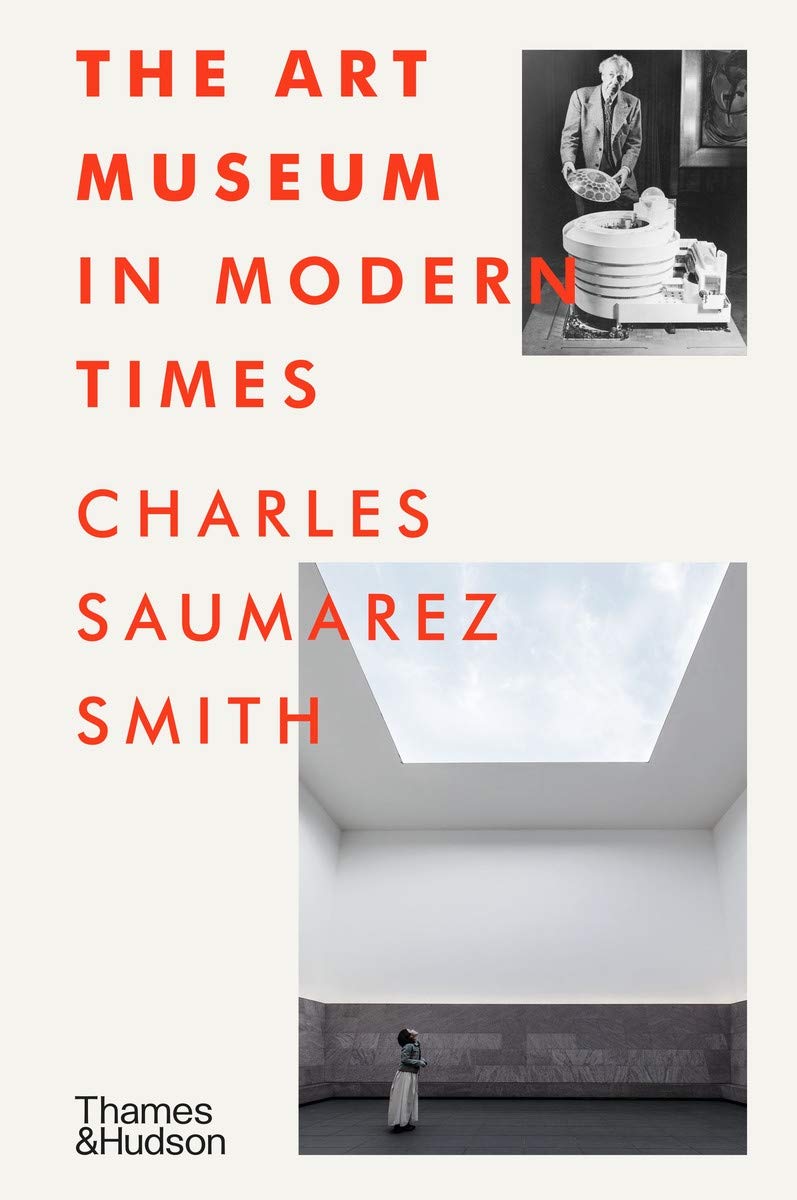“This book is a journey of historical discovery, set out sequentially in order to convey a sense of what has changed over time.” Add to this sentence, the title of the work from which it is taken, The Art Museum in Modern Times, and you’ll probably have a reasonable sense of Charles Saumarez Smith’s latest book. Simple, effective – Smith presents us with a series of case studies of museums, placed in chronological order according to each’s unveiling. Following a brief introduction to the Traditional Museum (“bastions of intellectual and scholarly conservatism, dedicated to the understanding and appreciation of the art of the past”), Smith guides us through the phases of museum design from the modern to the contemporary.
In this journey, it is Smith who performs the role of the museum guide. As a former director of London’s National Portrait Gallery, National Gallery, and Chief Executive of the Royal Academy of Arts, it is one for which he is more than qualified. The discussion of each museum, beyond “its construction, who was involved and what they wanted to achieve” – architects, yes, but also directors, private donors, and Saudi princes – is instilled with Smith’s first-hand experience of each museum. With this, comes a largely predictable line-up. The icons of New York, Paris and London all feature, but there is still room for those perhaps further afield, from the São Paulo Museum of Art (1969), “a long, gigantic, rectilinear concrete block, like a skyscraper tipped on its side”, to Naoshima’s tranquil Benesse House Museum (1992), or the Muzeum Susch (2019), tucked away amid Switzerland’s Engadin mountains.
 With informed and engaging prose, Smith brings out the personality unique to each museum. This is complemented by a diverse selection of images: portraits of Alfred H. Barr Jr, first director of the Museum of Modern Art, and Gae Aulenti, designer of the controversial Musee D’Orsay (1986); sketches belonging to Renzo Pianzo, architect of The Menil Collection, Houston (1987), or David Chipperfield’s competition entry for the Hepworth Wakefield (2011); and photographs, elucidating even the more complex, most idiosyncratic design features – such as the staccato staircase of David Walsh’s MONA, Hobart (2011), or the “white, organic, plastic skin” enveloping Los Angeles’s The Broad (2015). All these play their part in a book that is, above all else, shockingly good-looking – which, given its concern more with the buildings that house works of art than the works of art themselves, seems only fair to mention. Smith warns, “Museums are becoming ever more commercial and looking ever more like shopping malls”. If so, the folks at Thames & Hudson are ahead of the game. This is proper coffee-table stuff, a lesson in minimalist product design, and the kind of book which, in a superficial sense at least, you need to own.
With informed and engaging prose, Smith brings out the personality unique to each museum. This is complemented by a diverse selection of images: portraits of Alfred H. Barr Jr, first director of the Museum of Modern Art, and Gae Aulenti, designer of the controversial Musee D’Orsay (1986); sketches belonging to Renzo Pianzo, architect of The Menil Collection, Houston (1987), or David Chipperfield’s competition entry for the Hepworth Wakefield (2011); and photographs, elucidating even the more complex, most idiosyncratic design features – such as the staccato staircase of David Walsh’s MONA, Hobart (2011), or the “white, organic, plastic skin” enveloping Los Angeles’s The Broad (2015). All these play their part in a book that is, above all else, shockingly good-looking – which, given its concern more with the buildings that house works of art than the works of art themselves, seems only fair to mention. Smith warns, “Museums are becoming ever more commercial and looking ever more like shopping malls”. If so, the folks at Thames & Hudson are ahead of the game. This is proper coffee-table stuff, a lesson in minimalist product design, and the kind of book which, in a superficial sense at least, you need to own.
What this is not, is a radical interrogation of the dynamics of power that have made, and that still make, all this possible: the dependence of museums on vast, often dubious sources of wealth; the ethics of restitution; and the lingering questions as to what role museums and galleries might play in the ongoing fight against racism. Excepting a few politically-minded case-studies, only in Smith’s brief concluding statement do these issues seriously threaten to emerge. Museums themselves might well have moved on from the so-called modernist dream of an unadorned, blank-slate gallery, but in its unperturbed aestheticism The Art Museum of Modern Times is about as white-box as they come.
Good. No book can exhaust the full extent of a topic, and there are others (perhaps none more so than today) willing to do the dirty work. Arguably, even, there is a bravery in the blinkered view. Museums, in the real world, are struggling to stay open; Smith’s book is a celebration of exactly what has been missed. Its readers may face the opposite problem.
- The Art Museum In Modern Times by Charles Saumarez Smith (Thames & Hudson, £30.00)
- Read more book reviews on theartsdesk















Add comment